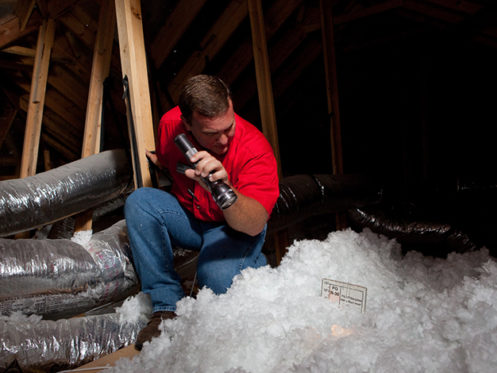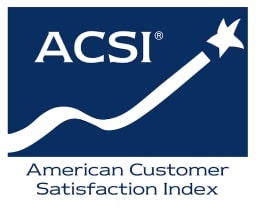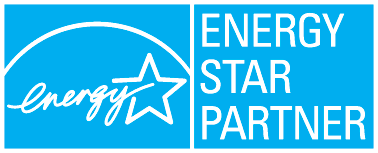The holidays are here! It’s a time for gatherings of family and friends, for football, shopping, decorating, and food and cooking—lots of food, eating and cooking.
All those festive gatherings can significantly impact overall electricity usage. According to the U.S. Department of Energy, for instance, food preparation alone accounts for more than 4% of total usage in the average U.S. home. Between Thanksgiving and New Year’s, though, that ratio is apt to rise. This 4% figure doesn’t include cooking-related appliances, either—things like refrigerators, dishwashers and others; extra holiday cooking inevitably translates into increased usage from these sources too.
Plus, more people in the home means more electricity usage from computers, TVs, lights and handheld devices. And don’t forget added consumption from decorative lighting and various knickknacks that sing, dance and/or play music.
It’s important be a jovial host, of course, but you don’t have to sacrifice holiday fun to remain efficiency minded. GVEC is dedicated to helping our members conserve electricity, so we’re offering some tips this month for celebrating the holidays with greater energy efficiency.
Celebrating the Holidays with Greater Energy Efficiency: Cooking Tips
In this section we offer tips revolving around one of greatest of all seasonal traditions: holiday cooking.
Limit Peeks Into the Oven
The urge to open the oven door and check the progress of culinary creations can be irresistible. In the interest of properly cooking your dish, decreasing cook time, oven wear-and-tear, and conserving electricity, we encourage you to resist, resist! Each opening of the door can lower the temperature inside the oven by as much as 25 degrees. Your oven must cycle on more frequently to replace all that lost heat—that’s not a recipe for celebrating holidays with greater energy efficiency.
Clean the Burner Covers
We get it—cleaning those silvery burner covers often used on electric stovetops can be a pain. However, keeping covers clean and shiny is important to achieving maximum electrical efficiency from your burners and helping them last longer. If you replace the covers, remember: the higher-quality the replacements, the better.
Use Smaller Appliances Where Possible
Generally speaking, smaller cooking appliances use substantially less electricity than standard-sized ovens or stovetops. So, don’t forget to use your Crockpot™, pressure cooker, microwave, air fryer or toaster oven in place of a regular oven or stovetop when you can.
Cook with Ceramic, Stoneware, and Glass Pans and Baking Sheets
Ceramic, stoneware and glass all get hotter, retain heat better than metals. Using pans and baking sheets made from these materials can help decrease cook times and reduce the amount of heat needed for baking. By some estimates, you can reduce the temperature suggested for cooking by up to 25 degrees when using glass or ceramic.
Don’t Cook More Than Needed
In the joy of preparing a large holiday meal, it can be easy to overestimate how much food you need to cook. We suggest resisting this tendency by approaching meal preparation methodically. How many people are coming? What are each guest’s likes and dislikes? Do you really need five pumpkin pies? Cooking more than needed will not only waste electricity through longer cooking times, but also contributes to waste and higher food bills.
Celebrating the Holidays with Greater Energy Efficiency: AC/Heating Tips
No matter the time of year, weather and its impacts on home comfort are one of the most important impactors of home energy usage. That’s why HVAC use should factor into any plan for celebrating the holidays with greater energy efficiency.
Weather Matters & Mother Nature Can Be Fickle
Temperatures this time of year tend be milder in South Central Texas, which can help lower electric bills as AC/heating units run less frequently. This isn’t guaranteed, however, and it’s not unheard for residents to run the AC this time of year. It’s also not out of the question for heaters to be in use during the holidays in our area. Therefore, you’ll want to approach AC/heating efficiency based on what Mother Nature delivers.
Turn on Fans, Open Windows to Cool Down
If outdoor temperatures combined with a full house and a busy kitchen make it uncomfortably warm, don’t forget to use ceiling fans. These can make occupants feel up to eight degrees cooler, possibly allowing you to resist the urge to lower the thermostat, saving electricity. Just be sure to turn fans off in empty rooms as they don’t actually lower the temperature.
Additionally, if it’s hot in the house, but relatively pleasant outside, consider leaving the AC off and opening doors and windows to circulate air and cool the home naturally.
Let Things Heat up Naturally
If the outdoor temperature has you reaching for the thermostat’s heat controls, consider going easy on the setting—especially early in the morning and/or before you start cooking. A hot oven and stovetop can significantly raise the home’s temperature, especially when combined with the warmth numerous guests will generate. This is another instance where ceiling fans—set in reverse—can help distribute heat generated in a busy kitchen throughout the home.
Celebrating the Holidays with Greater Energy Efficiency: Holiday Decorating Tips
As the Christmas spirit falls across South Central Texas, many residents find themselves inspired to decorate for season. We say, let your spirit shine–but always remember to decorate with a mind toward energy efficiency. Here are some tips.
Light Your Holidays with Greater Efficiency
Holiday decorating can be fun and magical, bringing out the Christmas spirit in all. Depending on what kind of lighting you use, though, and how often you power your decorations, they can also significantly increase home electricity usage.
One energy efficiency step you can take to decrease electricity usage from holiday decorations is to use LED instead of incandescent technology. According to the U.S. Department of Energy, LED lights use a minimum of 75% less electricity compared to incandescent, while lasting around 25 times longer. Try to avoid leaving holiday lights on overnight, too, or when no one’s home to enjoy them.
Turn Off the Lights
It’s age-old advice that’s probably been around as long as the electric lightbulb itself, but turning off the lights in unoccupied rooms is always sound advice for helping save electricity. Be sure to ask holiday guests to shut off the lights when they leave a room.
Happy Holidays from Your Cooperative Neighbors at GVEC
No matter how you spend the upcoming holidays, GVEC wishes you happiness, light and prosperity. May all your gatherings be filled with the joy of family and friends, and the satisfaction of celebrating the holidays with greater energy efficiency. For information on any GVEC product or service, including home solar panels, battery storage solutions, electricians services, internet or electricity, call us at 800.223.4832.



